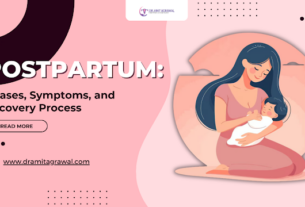Pregnancy is a transformative journey, but it also brings physiological changes that can increase certain health risks, including stroke. Though rare, stroke during pregnancy requires timely medical attention to prevent complications for both the mother and baby. Dr. Amit Agrawal at Swastik Clinic provides expert care, ensuring that expecting mothers receive accurate diagnosis and effective management for stroke-related concerns.
What is a Stroke?
A stroke occurs when blood flow to the brain is interrupted, either due to a blockage (ischemic stroke) or bleeding (hemorrhagic stroke). This can result in brain cell damage, affecting essential functions such as speech, movement, and cognition.
Causes of Stroke in Pregnancy
Several factors contribute to stroke during pregnancy, including:
- Increased Blood Clotting: Pregnancy naturally increases clotting tendencies to prevent excessive bleeding during childbirth, but this also raises stroke risk.
- Preeclampsia and Eclampsia: High blood pressure conditions during pregnancy can lead to complications like seizures and stroke.
- Hormonal Changes: Elevated estrogen levels may contribute to blood vessel changes, increasing stroke susceptibility.
- Gestational Diabetes: This condition can lead to high blood sugar levels, damaging blood vessels and raising stroke risk.
- Heart Disorders: Certain underlying cardiovascular conditions can increase the likelihood of stroke during pregnancy.
Recognizing the Symptoms
Early recognition of stroke symptoms can significantly improve outcomes. Expecting mothers should seek immediate medical help if they experience:
- Sudden weakness or numbness in the face, arm, or leg (especially on one side)
- Difficulty speaking or understanding speech
- Severe headache with no known cause
- Vision disturbances or sudden loss of sight
- Loss of balance or dizziness
Diagnosing Stroke During Pregnancy
Timely diagnosis is crucial for effective treatment. Common diagnostic methods include:
- MRI and CT Scans: These imaging techniques help identify brain abnormalities.
- Blood Tests: Evaluating clotting factors and underlying conditions.
- Echocardiography: To assess heart function and detect any clot formation.
- Doppler Ultrasound: To examine blood flow in the arteries.
Managing Risk Factors
While some risk factors are unavoidable, others can be managed with lifestyle modifications and medical guidance:
- Maintain healthy blood pressure levels.
- Manage diabetes and cholesterol effectively.
- Stay physically active with doctor-approved exercises.
- Follow a balanced diet rich in essential nutrients.
- Avoid smoking and limit caffeine intake.
Conclusion
Stroke in pregnancy, though uncommon, requires awareness and proactive healthcare management. Expecting mothers should prioritise regular check-ups and seek medical advice at the first sign of concern. Dr. Amit Agrawal at Swastik Clinic offers specialised care, guiding women through a safe and healthy pregnancy journey.
📍 Visit us at: Swastik Clinic, B2-17, Opposite Duttaguru Society, Sector 15, Vashi, Navi Mumbai
📞 Call Us: +91 8850461614 | +91 9437163294
📧 Email: dramit19@yahoo.com




